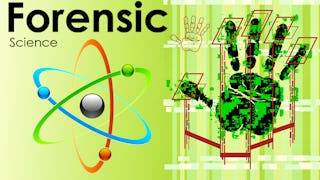- Browse
- Korean Language
Results for "korean language"
 Status: Free TrialFree TrialJ
Status: Free TrialFree TrialJJohns Hopkins University
Skills you'll gain: Regression Analysis, Statistical Analysis, Statistical Modeling, Correlation Analysis, Data Analysis, Statistical Methods, Predictive Modeling, Probability & Statistics, Statistical Inference
4.4·Rating, 4.4 out of 5 stars3.4K reviewsMixed · Course · 1 - 4 Weeks
 Status: PreviewPreviewU
Status: PreviewPreviewUUniversity of Michigan
Skills you'll gain: Mechanical Engineering, Thermal Management, Engineering, Energy and Utilities, Physics, Engineering Analysis, Systems Of Measurement, Physical Science, Process Analysis, Environmental Issue
4.8·Rating, 4.8 out of 5 stars3.5K reviewsBeginner · Course · 1 - 3 Months
 Status: NewNewStatus: Free TrialFree TrialA
Status: NewNewStatus: Free TrialFree TrialAAI Business School
Skills you'll gain: Prompt Engineering, AI Personalization, Generative AI, HR Tech, Artificial Intelligence, ChatGPT, LLM Application, Human Resources, Large Language Modeling, Applicant Tracking Systems, Ideation, Business Process Automation, Content Creation, Innovation, Business Transformation
Intermediate · Course · 1 - 4 Weeks
 Status: PreviewPreviewN
Status: PreviewPreviewNNanyang Technological University, Singapore
Skills you'll gain: Criminal Investigation and Forensics, Scientific Methods, Chemistry, Investigation, Case Studies, Biochemistry, Analytical Chemistry, Pharmacology, Laboratory Testing, Hematology, Pathology, Molecular Biology
4.9·Rating, 4.9 out of 5 stars2.8K reviewsMixed · Course · 1 - 3 Months
 Status: Free TrialFree TrialT
Status: Free TrialFree TrialTThe Hong Kong University of Science and Technology
Skills you'll gain: Linear Algebra, Engineering Calculations, Algebra, Engineering Analysis, General Mathematics, Advanced Mathematics, Applied Mathematics, Arithmetic, Computational Logic
4.9·Rating, 4.9 out of 5 stars4.6K reviewsBeginner · Course · 1 - 4 Weeks
 Status: Free TrialFree Trial
Status: Free TrialFree TrialSkills you'll gain: Order Fulfillment, E-Commerce, Google Ads, Digital Advertising, Customer experience improvement, Market Research, Marketing, Retail Management, Sales, Shipping and Receiving, Marketing Strategies, Market Trend, Process Optimization, Target Audience
4.8·Rating, 4.8 out of 5 stars1.9K reviewsBeginner · Course · 1 - 4 Weeks
 Status: Free TrialFree TrialU
Status: Free TrialFree TrialUUniversity of California, Irvine
Skills you'll gain: Internet Of Things, Basic Electrical Systems, Automation Engineering, Electronics, Electronic Components, Embedded Systems, Control Systems, Electronic Hardware, Wireless Networks, Electrical and Computer Engineering, Hardware Design, Peripheral Devices, Human Machine Interfaces, Electrical Wiring, Computer Systems, Programming Principles, Systems Engineering, Computer Programming, Remote Access Systems, Interactive Learning
4.7·Rating, 4.7 out of 5 stars3.9K reviewsMixed · Course · 1 - 4 Weeks
 Status: Free TrialFree TrialC
Status: Free TrialFree TrialCCase Western Reserve University
Skills you'll gain: Coaching, Negotiation, Emotional Intelligence, Empathy, Leadership Development, Initiative and Leadership, Compassion, Leadership, Organizational Change, Organizational Leadership, Organizational Development, Culture Transformation, Team Leadership, People Development, Influencing, Strategic Leadership, Active Listening, Case Studies, Personal Development, Professional Development
4.7·Rating, 4.7 out of 5 stars2.6K reviewsIntermediate · Specialization · 3 - 6 Months
 Status: NewNewStatus: Free TrialFree Trial
Status: NewNewStatus: Free TrialFree TrialSkills you'll gain: Matplotlib, NumPy, Pandas (Python Package), Applied Machine Learning, Python Programming, Scikit Learn (Machine Learning Library), Data Visualization, Supervised Learning, Feature Engineering, Machine Learning, Natural Language Processing, Text Mining, Data Manipulation, Unsupervised Learning, Performance Tuning
Mixed · Course · 1 - 4 Weeks
 D
DDeepLearning.AI
Skills you'll gain: MLOps (Machine Learning Operations), Application Deployment, Continuous Deployment, Software Development Life Cycle, Machine Learning, Applied Machine Learning, Data Validation, Feature Engineering, Data Quality, Continuous Monitoring, Data Pipelines
4.8·Rating, 4.8 out of 5 stars3.3K reviewsIntermediate · Course · 1 - 4 Weeks
 Status: NewNewStatus: Free TrialFree TrialA
Status: NewNewStatus: Free TrialFree TrialAAI Business School
Skills you'll gain: Prompt Engineering, Generative AI, Sales, Sales Enablement, AI Personalization, Sales Management, AI Product Strategy, Large Language Modeling, ChatGPT, Management Training And Development, Workflow Management, Artificial Intelligence, Ideation, Application Design, Innovation, Business Transformation, Content Creation, Key Management
Intermediate · Course · 1 - 4 Weeks
 Status: Free TrialFree TrialB
Status: Free TrialFree TrialBBerklee
Skills you'll gain: Music, Musical Composition, Post-Production, Peer Review, Media Production, Music Theory, Music Performance, Instrumental Music, Automation, Editing, Creativity, File Management, Writing, Timelines, Content Creation, Electronic Media, Technology Solutions
4.8·Rating, 4.8 out of 5 stars3K reviewsBeginner · Specialization · 3 - 6 Months
In summary, here are 10 of our most popular korean language courses
- Regression Models: Johns Hopkins University
- Introduction to Thermodynamics: Transferring Energy from Here to There: University of Michigan
- Practical AI and prompting for HR professionals: AI Business School
- Introduction to Forensic Science: Nanyang Technological University, Singapore
- Matrix Algebra for Engineers: The Hong Kong University of Science and Technology
- Make the Sale: Build, Launch, and Manage E-commerce Stores: Google
- Interfacing with the Arduino: University of California, Irvine
- Inspired Leadership: Case Western Reserve University
- Machine Learning in Python: Analyze & Apply: EDUCBA
- Machine Learning in Production: DeepLearning.AI










